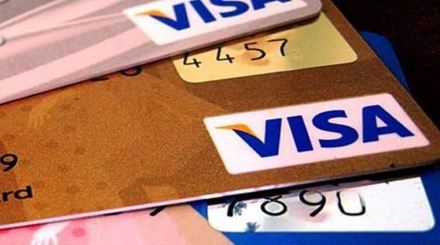At times we have multiple credit cards, and we only tend to use some while others are kept aside in our wallets. Some may get a credit card and stop using it after they have already got it activated. These habits may sound like having no immediate impact on you, but you may lose out on rewards and lack an opportunity to build a solid credit score.
Keeping your credit cards inactive or not using them can have various consequences and effects on your financial profile. While it may seem like a safe approach to avoid accumulating debt, there are certain implications to consider.
Let us understand what happens when you keep your credit cards inactive:
Impact on Credit Score
Before proceeding with the actual closure, credit card issuers typically send multiple notices alerting you to the lack of card usage and inquiring whether you want to maintain the card’s active status. Closing an inactive credit card, especially one with a long-standing history at a bank, can potentially have a negative impact on your credit score.
This is due to the fact that when you maintain a lengthy relationship with a bank, it provides evidence of your consistent punctuality in payments, deposits, withdrawals, and other financial activities. Closing such a credit card may result in the removal of positive financial history from your credit record.
Also Read: Should you opt for No-Cost EMI this festive season? Find out
Reduced Credit Limit Utilisation (CUR)
Your CUR is the proportion of your available credit limit that you use. When you don’t spend on your credit cards, your CUR remains low. A low CUR is good for your credit score as it indicates responsible credit management. However, having a credit card with zero utilisation might not demonstrate your ability to manage credit effectively. Creditors may view this as a lack of experience in handling credit, which could impact your chances of getting approved for other credit products like loans in the future.
Inactivity Charges
Some credit card issuers may impose dormancy fees or inactivity charges if you don’t use your credit card for an extended period. These fees are designed to encourage cardholders to use their cards regularly. They may be assessed annually or after a specified period of inactivity. To avoid these charges, it’s essential to understand your card issuer’s terms and conditions.
Card Closure
Issuers may close your credit card account if it remains inactive for an extended period. While this might not have an immediate impact on your credit score, it can reduce the overall credit available to you.
Adhil Shetty, CEO, Bankbazaar.com, says, “If you had a good credit history associated with the card, its closure might also affect your credit mix and average account age, which are factors that contribute to your credit score.”
Also Read: How to celebrate Diwali without facing financial stress
Loss of Rewards and Benefits
Credit cards often come with rewards programmes, cashback offers, and various benefits like complimentary lounge access and other facilities. You miss out on these rewards and perks.
Shetty explains, “Additionally, if you have a credit card with an annual fee, it’s worth considering whether the card’s benefits justify the fee if you’re not actively using them.”
Difficulty in Emergency Situations
Inactive credit cards can be a problem when you encounter unexpected financial emergencies. If your card is dormant, you might need to request reactivation, which can take some time. It’s generally advisable to keep at least one credit card active and available for such unforeseen circumstances.
Less Financial Flexibility
Credit cards can provide a useful financial cushion when you need to make a purchase but lack immediate funds. When you don’t use your credit cards, you have less financial flexibility in terms of making large or unexpected payments. This can affect your ability to manage emergencies or arrange funds when you require quick financing.
Missed Credit History
Building a credit history is essential for financial transactions, such as applying for loans or mortgages. An inactive credit card doesn’t contribute positively to your credit history. Consistently responsible use of credit cards can help build a robust credit history, which is beneficial.
While keeping your credit cards inactive may seem like a safe approach to avoid debt, it’s important to understand the potential consequences. To maintain a good credit score and financial flexibility, it’s often advisable to use your credit cards responsibly, even if it’s for small, regular transactions. Regular usage helps build a credit history and ensures that your credit cards remain useful financial tools for various purposes.
